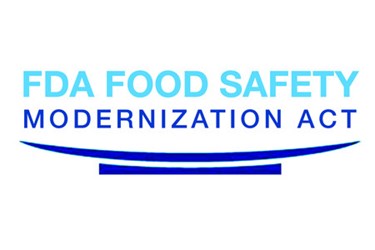FSMA: Getting Down To The Nitty-Gritty Of Implementation
By Laurel Maloy, contributing writer, Food Online

Michael Taylor offers words and wisdom in his FDA Voice blog post as the newest proposed changes to four FSMA rules are now poised for implementation
These four rules all have to do with the regulation of human and animal foods, as well as foreign and domestic foods. In his blog on the FDA Voice, you can almost hear Taylor breathing a long-deserved sigh of relief. After a barrage of public comments, with some food producers having exceptionally strong feelings regarding the proposed rules, the updates have been published and are being well-received. However, the public comment period is still open on these four rules — Produce Safety, Preventive Controls for Human Food, Preventive Controls for Animal Food, and the Foreign Supplier Verification Program. The deadline for public comment is Dec 15, 2014. According to Taylor, “People all over the country are rolling up their sleeves and preparing to make FSMA a reality.”
Taylor and his team have just returned from what is termed “listening sessions” in the three states considered to be top producers of fruits and vegetables for the world — Florida, Georgia, and North Carolina. This trip follows sessions in California and Vermont, during which Taylor described the attitude toward FSMA as going from “wariness to welcome.” Taylor’s goal is to develop strong, cooperative partnerships with the FDA’s counterparts in all 50 states. He states that the FDA will rely heavily on these regulators to aide in training, compliance management, and technical support as FSMA is implemented. Across the board, Taylor has felt an appreciation from state agricultural leaders that imported raw and processed products will be held to the same strict standards as U.S.-based producers. Not only is this essential for food safety, but U.S. producers feel it “levels the playing field,” enabling them to compete for an equal share of the U.S. and international markets.
Taylor was quite forthcoming about his team’s visit to each state, the gracious welcomes, the successful sessions, and the opportunities to tour some of each state’s food-processing facilities and farms. The ongoing dialog has been a success story when it comes to drafting and implementing what may very well be the largest and most-critical undertaking the FDA has ever experienced. Since its revitalization in 2011, FSMA has been on the fast track, though, at times, we all may have wondered if and when it would ever come to fruition. The complete timeline, from the first FSMA Public Meeting on March 29, 2011 to the Q & A session on the use of manure and compost on crops held December 8, 2014, is available here. The FDA has definitely set the example for exceptional record keeping; an example we should all follow. Recordkeeping will be the be-all and end-all as FSMA is fully implemented.
Taylor, however, still seems concerned about funding, as are those he’s spoken with. He mentioned that his team was asked on numerous occasions about funding. Taylor reiterated the fact that sound implementation of FSMA will require adequate funding beginning in late 2016. Adequate funding includes the monies necessary to implement training and to provide the technical support critical to successful implementation. He also highlighted the additional funding needed for developing state partnerships and import oversight. Now, ball is tossed to Congress!
